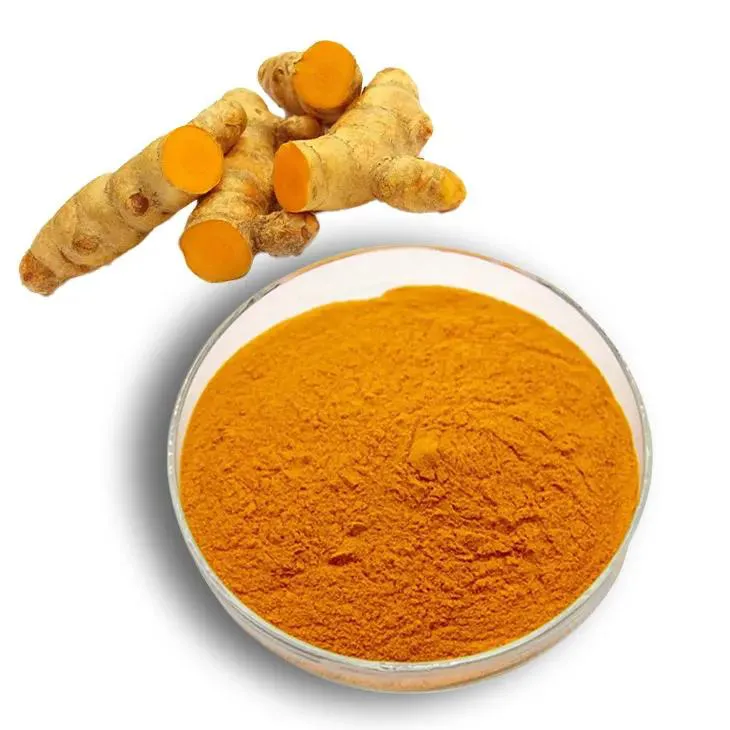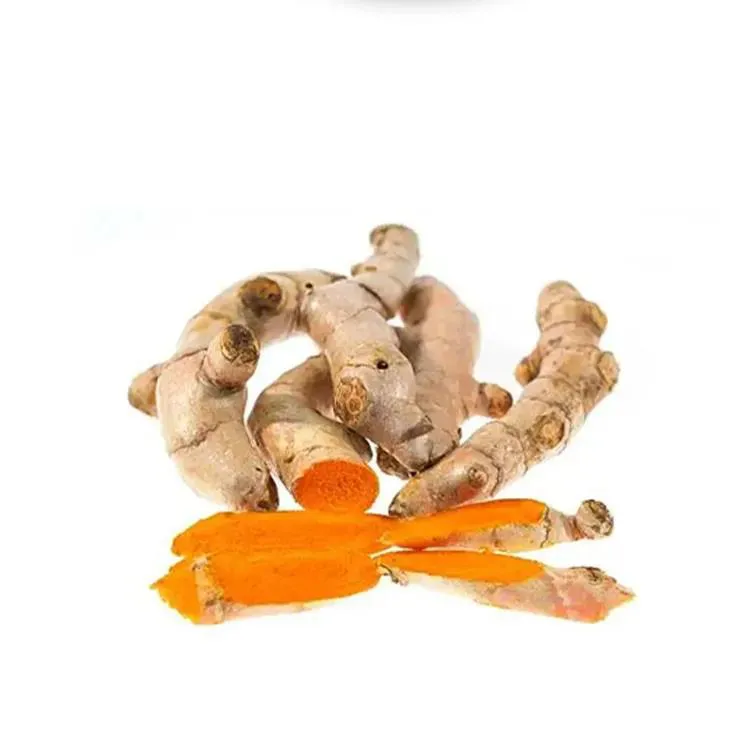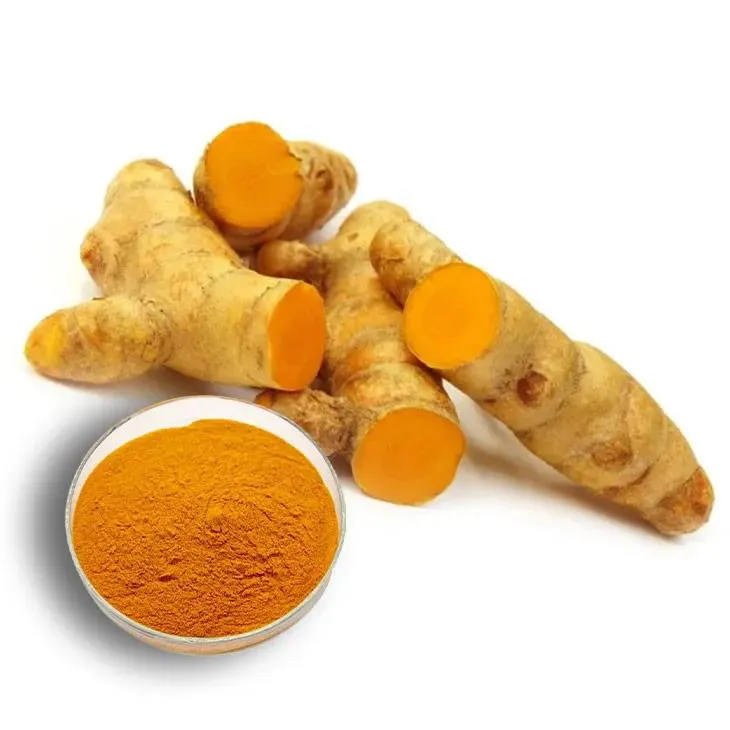- 0086-571-85302990
- sales@greenskybio.com
A Safe Spice? Evaluating the Safety and Side Effects of Curcuma Longa Extract
2024-07-04

Introduction
Curcuma Longa Extract, widely known as turmeric extract, has a long - standing history in traditional medicine. For centuries, it has been utilized in various cultures for its purported medicinal properties. As it gains increasing popularity in modern health and wellness trends, it becomes crucial to thoroughly evaluate its safety aspects. This article will comprehensively analyze the potential side effects of Curcuma Longa Extract, considering different factors such as its impact on the digestive system, interactions with medications, and implications of long - term use.

1. Curcuma Longa Extract: A Brief Overview
Curcuma longa, the plant from which turmeric extract is derived, is a member of the ginger family. The active compound in turmeric is Curcumin, which is responsible for many of its health - promoting properties. Turmeric extract is often used in dietary supplements, as well as in some culinary applications. It is known for its anti - inflammatory, antioxidant, and potential anti - cancer properties. However, while these potential benefits are widely studied, the safety profile of Curcuma longa extract also requires in - depth examination.

2. Impact on the Digestive System
2.1 Gastrointestinal Upset
One of the most commonly reported side effects of Curcuma longa extract is gastrointestinal upset. In some cases, individuals may experience symptoms such as nausea, diarrhea, or indigestion after consuming turmeric extract. This can be attributed to several factors. Firstly, Curcumin can be irritating to the lining of the stomach in some people. Secondly, the extract may stimulate the production of stomach acid, which can lead to discomfort. However, it should be noted that these side effects are not universal and may vary depending on the individual's sensitivity and the dose of the extract consumed.
2.2 Gallbladder Effects
There has been some concern about the impact of Curcuma longa extract on the gallbladder. Since Curcumin may increase the production of bile, there is a theoretical risk of gallbladder contractions and the potential formation of gallstones. However, scientific research on this topic is still limited, and more studies are needed to determine the true nature of this relationship. Some small - scale studies have shown that in healthy individuals, the consumption of turmeric extract did not lead to any significant adverse effects on the gallbladder, but further research is warranted, especially in individuals with pre - existing gallbladder conditions.

3. Possible Interactions with Medications
3.1 Blood - Thinning Medications
Curcuma longa extract has the potential to interact with blood - thinning medications. Curcumin has anti - platelet and anticoagulant properties, which means it can affect blood clotting. When combined with medications such as warfarin or aspirin, it may increase the risk of bleeding. For example, a case study reported an individual who experienced excessive bleeding while taking warfarin and also consuming turmeric supplements. Therefore, it is essential for patients on blood - thinning medications to consult their healthcare providers before taking Curcuma longa extract.
3.2 Diabetes Medications
There is also evidence to suggest that Curcuma longa extract may interact with diabetes medications. Turmeric extract has been shown to have hypoglycemic effects, which means it can lower blood sugar levels. When combined with medications such as metformin or insulin, it may lead to hypoglycemia (low blood sugar). This can be particularly dangerous for diabetic patients, as it can cause symptoms such as dizziness, weakness, and confusion. Diabetic patients should be cautious when considering the use of turmeric extract and should monitor their blood sugar levels closely if they decide to take it.
3.3 Other Medication Interactions
In addition to blood - thinning and diabetes medications, Curcuma longa extract may interact with other drugs as well. For example, it may affect the absorption or metabolism of certain antibiotics or anti - cancer drugs. However, the exact nature of these interactions is not fully understood, and more research is needed. It is always advisable for individuals taking any medications to inform their healthcare providers if they are considering using turmeric extract as a supplement.

4. Long - Term Use Implications
4.1 Liver Health
With long - term use of Curcuma longa extract, there are concerns about its impact on liver health. Some animal studies have suggested that high doses of curcumin may cause liver toxicity. However, in human studies, the evidence is less clear. While some studies have reported no adverse effects on the liver with long - term use of turmeric extract, others have raised concerns about potential liver damage. More research is needed to determine the safe long - term dosage of Curcuma longa extract with respect to liver health.
4.2 Kidney Health
Regarding kidney health, there is limited research on the long - term effects of Curcuma longa extract. Some studies have indicated that curcumin may have a protective effect on the kidneys in certain conditions, such as diabetic nephropathy. However, it is not known whether long - term use of the extract may have any negative impacts on kidney function. As with liver health, more research is required to fully understand the implications of long - term use on kidney health.
5. Factors Affecting Safety
5.1 Dosage
Dosage is a crucial factor in determining the safety of Curcuma longa extract. Higher doses are more likely to cause side effects. In general, the recommended dosage for turmeric extract as a dietary supplement varies depending on the form of the extract and the intended use. However, it is important to note that even at lower doses, some individuals may still experience side effects due to their individual sensitivity.
5.2 Form of the Extract
The form of Curcuma longa extract can also affect its safety. For example, curcumin in its pure form may be less bioavailable and more difficult for the body to absorb, which may lead to different safety profiles compared to more bioavailable forms such as curcumin - phospholipid complexes. Additionally, different formulations of turmeric extract may contain other ingredients that could potentially interact with the curcumin or have their own safety considerations.
5.3 Individual Sensitivity
Individual sensitivity plays a significant role in the safety of Curcuma longa extract. Some people may be more sensitive to the effects of curcumin and may experience side effects at lower doses or more frequently than others. Factors such as age, underlying health conditions, and genetic factors may contribute to individual sensitivity. For example, elderly individuals or those with pre - existing digestive problems may be more likely to experience gastrointestinal side effects from turmeric extract.
6. Conclusion
In conclusion, while Curcuma longa extract, or turmeric extract, has many potential health benefits, it is not without potential side effects. Its impact on the digestive system, possible interactions with medications, and long - term use implications all need to be carefully considered. Dosage, form of the extract, and individual sensitivity are important factors that can affect its safety. Overall, more research is needed to fully understand the safety and side effects of this popular spice extract. Healthcare providers should be consulted, especially by those with underlying health conditions or those taking medications, before using Curcuma longa extract as a supplement.
FAQ:
Question 1: What are the common side effects of Curcuma longa extract on the digestive system?
Some people may experience digestive issues such as stomach upset, nausea, or diarrhea when taking Curcuma longa extract. However, these side effects are not universal and often depend on factors like the dosage and individual sensitivity. In some cases, taking it with food can help reduce these potential digestive side effects.
Question 2: Can Curcuma longa extract interact with medications?
Yes, it can. Curcuma longa extract may interact with blood - thinning medications like warfarin. It has the potential to increase the risk of bleeding. Also, it might interact with medications for diabetes, as it could affect blood sugar levels. Therefore, it is important for people taking medications to consult their healthcare provider before using Curcuma longa extract.
Question 3: Is it safe to use Curcuma longa extract for a long - term?
While there is no conclusive evidence to suggest that long - term use of Curcuma longa extract is unsafe, more research is needed. Some studies suggest that long - term use may be beneficial for certain health conditions, but potential risks, such as liver or kidney problems due to long - term accumulation, have not been fully ruled out. So, it should be used under the guidance of a healthcare professional for long - term use.
Question 4: Are there any allergic reactions associated with Curcuma longa extract?
Allergic reactions to Curcuma longa extract are possible, although relatively rare. Symptoms may include skin rashes, itching, swelling, or difficulty breathing. People with a known allergy to turmeric or related plants are more likely to experience an allergic reaction.
Question 5: How much Curcuma longa extract is considered a safe dosage?
The safe dosage of Curcuma longa extract can vary depending on factors such as age, health status, and the purpose of use. In general, for dietary supplementation, typical dosages range from 500 - 2000 mg per day. However, it is always best to consult a healthcare provider to determine the appropriate dosage for an individual.
Related literature
- Safety and Efficacy of Curcuma longa Extract in the Treatment of Inflammatory Diseases"
- "The Pharmacokinetics and Safety Profile of Curcuminoids from Curcuma longa"
- "A Review on the Interaction Potential of Curcuma longa Extract with Conventional Medications"
- ▶ Hesperidin
- ▶ Citrus Bioflavonoids
- ▶ Plant Extract
- ▶ lycopene
- ▶ Diosmin
- ▶ Grape seed extract
- ▶ Sea buckthorn Juice Powder
- ▶ Fruit Juice Powder
- ▶ Hops Extract
- ▶ Artichoke Extract
- ▶ Mushroom extract
- ▶ Astaxanthin
- ▶ Green Tea Extract
- ▶ Curcumin
- ▶ Horse Chestnut Extract
- ▶ Other Product
- ▶ Boswellia Serrata Extract
- ▶ Resveratrol
- ▶ Marigold Extract
- ▶ Grape Leaf Extract
- ▶ New Product
- ▶ Aminolevulinic acid
- ▶ Cranberry Extract
- ▶ Red Yeast Rice
- ▶ Red Wine Extract
-
Aguaje Extract
2024-07-04
-
Ginger Extract
2024-07-04
-
Mulberry leaf Extract
2024-07-04
-
Avocado Extract Powder
2024-07-04
-
Coix Seed Extract
2024-07-04
-
Curcumin Extract
2024-07-04
-
Alfalfa Meal
2024-07-04
-
Aminolevulinic acid
2024-07-04
-
Phyllanthus Emblica Extract
2024-07-04
-
Black Pepper Extract
2024-07-04





















